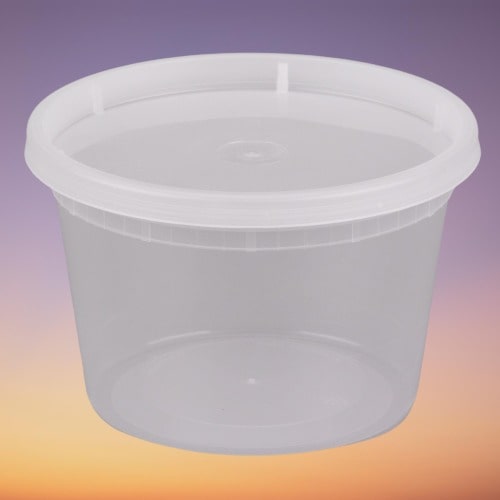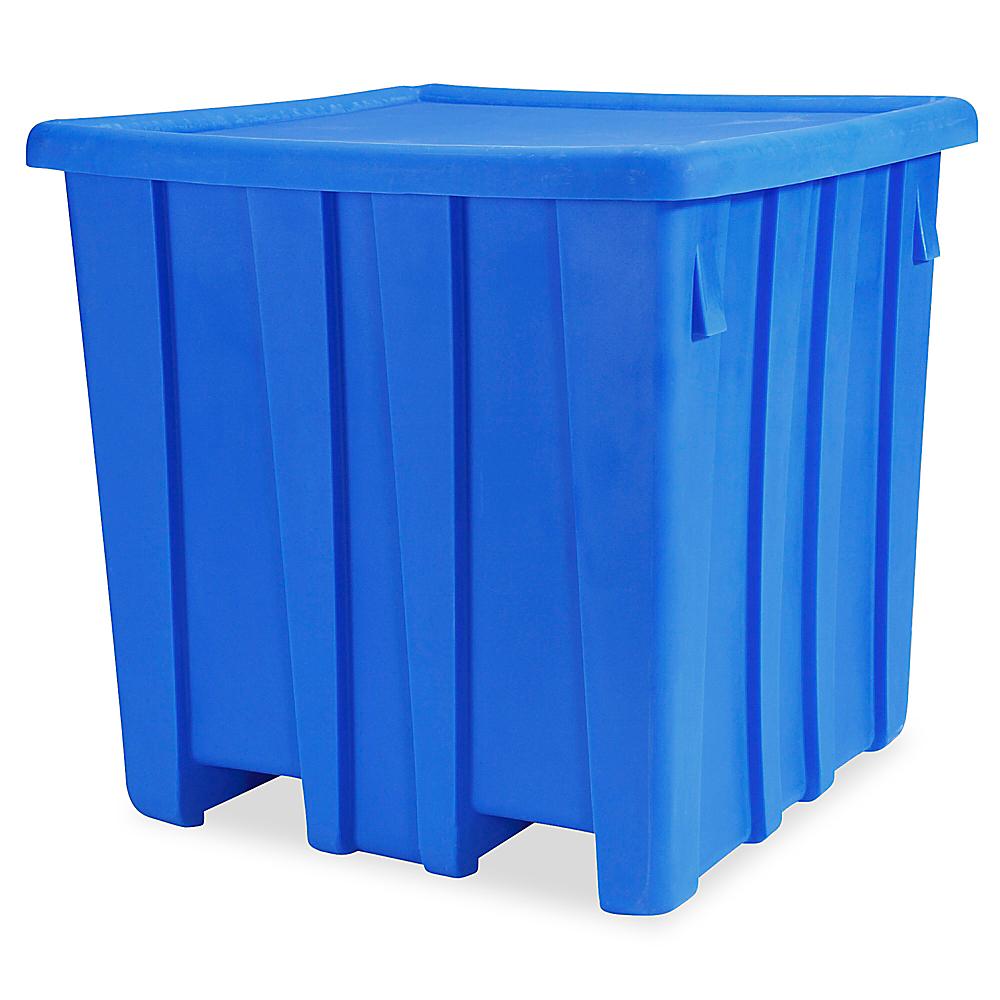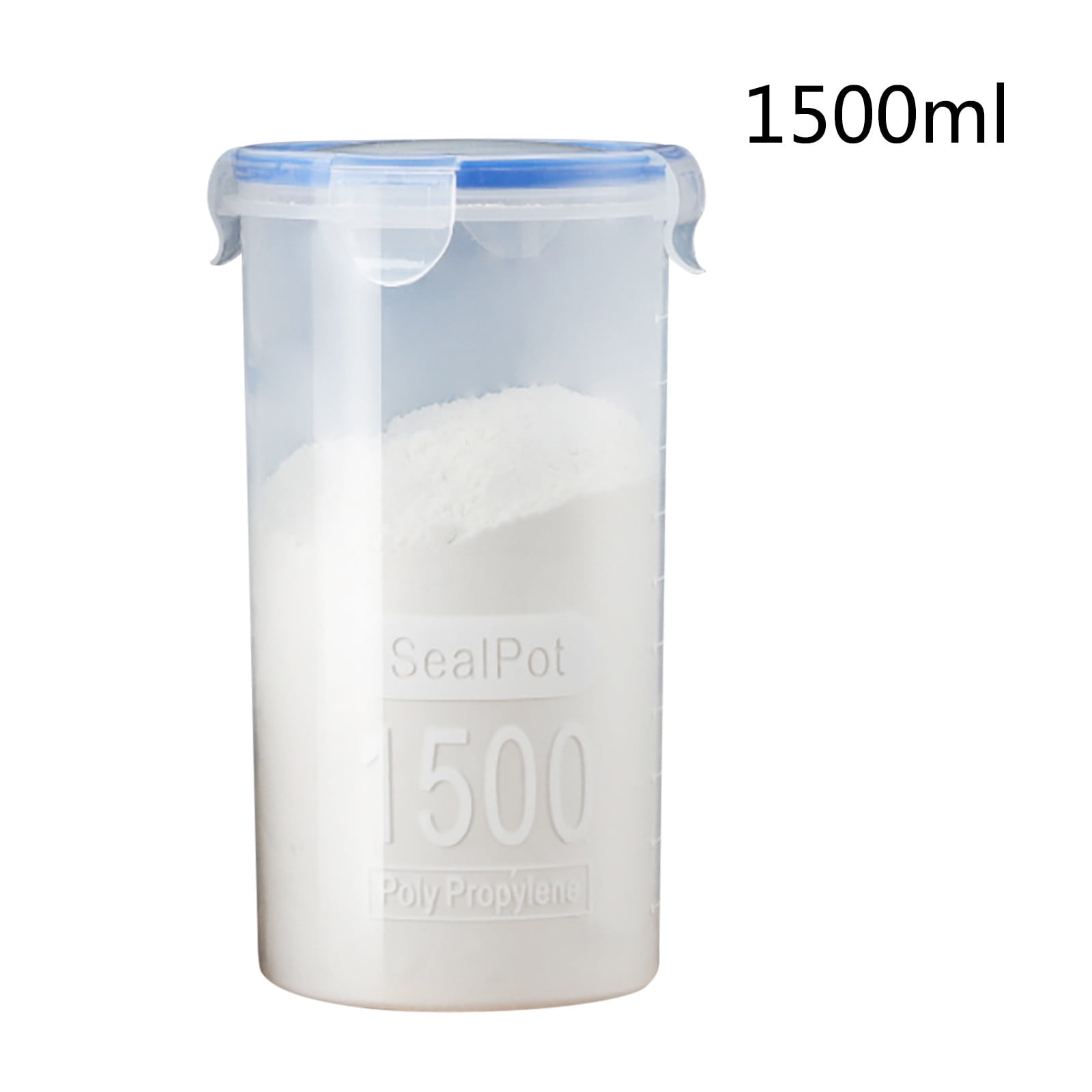How Bulk Plastic Containers can transform your inventory management system
Wiki Article
A Comprehensive Guide to the Different Sorts Of Bulk Plastic Containers Available Today
Bulk plastic containers play a vital function in numerous sectors, supplying solutions for storage and transport. Their diverse types satisfy different demands, from rigid choices for solid products to flexible containers fitting numerous shapes. Each kind offers unique advantages, making it necessary to recognize their applications and attributes. As industries advance, so do the needs for reliable container remedies. What variables should one take into consideration when picking the appropriate mass container?Introduction of Bulk Plastic Containers

Kinds Of Bulk Plastic Containers
Mass plastic containers been available in numerous types, each matched to particular applications. Inflexible bulk containers, versatile mass containers, and intermediate mass containers represent the primary groups, each offering unique advantages. Comprehending these kinds is important for choosing the appropriate container for transferring and saving products.
Rigid Bulk Containers
Stiff mass containers are important for effective storage and transportation of numerous products throughout industries. These containers are usually created from sturdy plastics, allowing them to stand up to harsh handling and environmental problems. They can be found in various sizes and shapes, including totes, containers, and drums, making them ideal for storing everything from granular substances to fluids. Stiff containers often include enhanced wall surfaces and protected covers, making sure the contents stay safeguarded throughout transportation. Their stackable design makes the most of storage space, making them ideal for stockrooms and producing facilities. In addition, numerous rigid mass containers are reusable and recyclable, adding to sustainability efforts. Generally, their robustness and versatility make stiff mass containers a crucial component in supply chain procedures.Flexible Mass Containers
Flexible mass containers, frequently described as flexible intermediate mass containers (FIBCs), function as a functional remedy for moving and saving a range of dry products. These containers are commonly made from woven polypropylene and are designed to be light-weight yet strong, allowing for efficient handling and piling. Their adaptability enables them to fit numerous shapes and sizes, making them ideal for products varying from grains to chemicals. FIBCs can be equipped with functions such as spouts for very easy filling and discharge, in addition to safety finishings for boosted sturdiness. In addition, they are recyclable and recyclable, adding to lasting practices in markets such as farming, food processing, and construction. Generally, adaptable bulk containers provide a cost-effective and effective option for bulk material management.Intermediate Bulk Containers
Intermediate bulk containers (IBCs) are necessary for the reliable transportation and storage space of fluids and granular materials across various markets. These containers commonly have a capacity ranging from 275 to 330 gallons and are created for simple piling and managing. Made from durable materials like high-density polyethylene or steel, IBCs provide excellent protection against contamination and environmental factors. Their design includes functions such as an integrated pallet for forklift access and a removable top for easy filling and cleansing. IBCs are commonly made use of in chemical, food, and pharmaceutical markets, making certain conformity with safety laws. Their convenience and reusability make them an affordable remedy for mass storage and transportation, adding to supply chain effectiveness and sustainability.Functions and Benefits of Bulk Plastic Containers
Bulk plastic containers are essential devices in different industries, supplying a mix of longevity and functionality. These containers are constructed from high-quality products, making them resistant to impacts, chemicals, and ecological elements. This robustness warranties product safety during storage and transport.Furthermore, bulk plastic containers are lightweight, promoting convenience of lowering and managing shipping prices. Their stackable style makes best use of storage space effectiveness, enabling optimized stockroom space. Several models include secure covers or closures, providing a closed seal that stops and preserves materials contamination.
Additionally, bulk plastic containers are recyclable and usually recyclable, adding to sustainable techniques. Their versatility enables a wide array of applications, from food storage space to commercial use, improving their value throughout fields. Services take advantage of the long life-span and low maintenance needs of these containers, making them a cost-efficient solution for both lasting and short-term requirements.
Industries That Use Mass Plastic Containers
Various sectors gain from the use of mass plastic containers, each leveraging their distinct properties for details applications. The food and drink industry depends on these check containers for secure storage space and transport of products, while the chemical manufacturing market uses them for handling hazardous materials. Additionally, the pharmaceutical distribution needs highlight the value of durability and cleanliness in product packaging solutions.Food and Drink Market
As the need for reliable and secure storage space remedies remains to climb, the food and drink sector significantly counts on bulk plastic containers for their operational needs. These containers provide durable, lightweight, and flexible choices for keeping ingredients, finished items, and waste products. Made from food-grade products, they assure compliance with health and wellness standards. Various styles, such as stackable bins and lug boxes, optimize space throughout transport and storage space, improving logistical performance. Furthermore, the openness of some mass containers permits simple stock administration, minimizing the danger of spoilage. With the market's concentrate on sustainability, several makers are now supplying recyclable and recyclable choices, aligning with eco-friendly methods while fulfilling the high demands of food safety and security and hygiene.
Chemical Manufacturing Field
The chemical production sector relies greatly on bulk plastic containers for the risk-free and reliable storage space of basic materials, intermediates, and ended up products. These containers are created to withstand numerous chemicals, guaranteeing that unsafe materials do not leakage or deteriorate the container itself. Usual types include high-density polyethylene (HDPE) and polypropylene containers, which supply exceptional chemical resistance and sturdiness. Their light-weight nature and stackable design promote transportation and storage, enhancing area in making centers. Additionally, numerous bulk plastic containers include attributes such as tamper-evident seals and easy-to-read labeling, boosting safety and compliance with market guidelines. On the whole, bulk plastic containers are important to the chemical production process, supplying dependable options for managing varied compounds.Drug Circulation Needs
Pharmaceutical circulation counts on mass plastic containers to fulfill rigorous safety and security and governing needs. These containers are essential for transferring and keeping a range of pharmaceutical products, including active pharmaceutical ingredients (APIs) and finished medicines. Their design guarantees defense versus contamination, light, and wetness, maintaining the integrity of delicate materials. Additionally, bulk plastic containers are compliant with sector criteria such as Great Manufacturing Practices (GMP) and are usually made from products that are FDA-approved. Making use of these containers boosts performance in the supply chain, permitting safe, large distribution while minimizing waste. Firms in the pharmaceutical industry prioritize making use of long lasting, leak-proof, and tamper-evident containers to assure product safety and top quality throughout the logistics process.Factors to consider for Selecting the Right Container
When selecting the ideal mass plastic container, different factors have to be meticulously considered to ensure perfect functionality and security. The nature of the materials to be saved is vital; compatibility with the container's material can affect stability and safety and security. plastic bulk containers. Additionally, the container's shapes and size need to align with the storage space and transportation needs, guaranteeing reliable space applicationLoad capability is another crucial consideration, as it must accommodate the weight of materials without risk of damages or failure. The style attributes, such as venting or covers, can affect use and gain access to. Conformity with industry guidelines is vital, specifically in industries like drugs, where safety and security requirements are strict.
Ultimately, the expected life expectancy and longevity of the container ought to be evaluated to validate it meets the operational requirements without regular substitute. By examining these factors, one can pick one of the most appropriate mass plastic container for certain applications.
Ecological Effect and Sustainability
As businesses significantly focus on sustainability, the ecological influence of bulk plastic containers has actually come under analysis. These containers, frequently made from products such as polyethylene or polypropylene, contribute considerably to plastic waste if not managed properly. Their production entails the consumption of fossil fuels, which can lead to raised greenhouse gas exhausts. Nevertheless, innovations in reusing modern technology and the growth of eco-friendly alternatives are aiding to mitigate these issues.In addition, lots of makers are adopting practices that stress using recycled materials, therefore minimizing the demand for virgin plastics. The resilience of mass plastic containers likewise contributes; they are developed to be recycled multiple times, which can reduce their general ecological impact when compared to single-use choices. Ultimately, the market faces the challenge of balancing performance with environmental responsibility, making sustainable techniques essential for the future of bulk plastic containers.
Ideal Practices for Storage and Transport
Reliable storage and transport of mass plastic containers considerably influence both operational performance and sustainability. To make best use of space, organizations must pile containers securely, guaranteeing security and protecting against damages. Correct labeling is vital for simple identification, which simplifies access procedures. Furthermore, keeping a well organized and tidy storage space location lowers the risk of contamination and improves security.For transportation, choosing the ideal lorry is vital; containers ought to be protected to prevent changing throughout transportation. Business need to additionally consider using pallets to help with simpler loading and discharging. Routine evaluations of containers for deterioration can stop pricey substitutes.
Temperature level control is one more crucial element, as extreme conditions can compromise the stability of the plastic. Lastly, training employees on best methods for handling and transportation assurances conformity and advertises a culture of safety and security. By executing these best techniques, services can enhance their operational performance while adding to environmental sustainability.
Regularly Asked Concerns
Exactly how Do I Clean Mass Plastic Containers Successfully?
To clean mass plastic containers successfully, one should wash them with warm water, make use of a moderate cleaning agent and scrub with a Going Here soft brush. Wash completely, then permit to air dry entirely before storage space or reuse.What Is the Life Expectancy of Mass Plastic Containers?
The life expectancy of bulk plastic containers commonly ranges from 5 to one decade, depending upon the product, usage, and ecological problems. Appropriate upkeep and storage can substantially prolong their use and toughness in time.Can Mass Plastic Containers Be Personalized?

Do Mass Plastic Containers Have Service Warranty Options?

Exist Laws for Using Bulk Plastic Containers?
Yes, policies exist for utilizing bulk plastic containers, largely concentrated on security, environmental impact, and product conformity. These policies guarantee that containers fulfill sector requirements and appropriate for transporting numerous compounds safely and efficiently.Inflexible bulk containers, versatile bulk containers, and intermediate mass containers stand for the main classifications, each offering distinct benefits. Versatile bulk containers, frequently referred to as flexible intermediate bulk containers (FIBCs), offer as a flexible option for carrying and keeping a range of completely dry products. The chemical production market relies greatly on mass plastic containers for the risk-free and reliable storage of raw materials, intermediates, and finished items. Bulk Plastic Containers. These containers are designed to withstand numerous chemicals, making certain that harmful products do not leak or weaken the container itself. Furthermore, bulk plastic containers are certified with industry criteria such as Great Production Practices (GMP) and are commonly made from materials that are FDA-approved
Report this wiki page